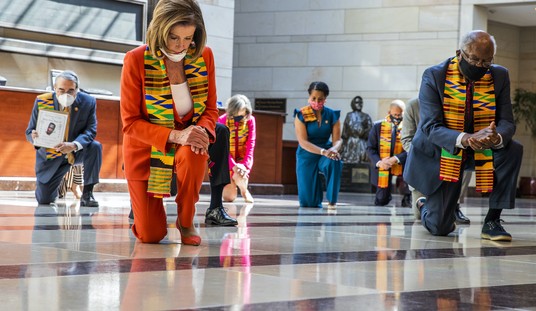The Iraqi Army has moved to establish central-government control of the southern city of Basra after the British pullout ignited a turf war between the Badr Brigades and Moqtada al-Sadr’s Mahdi Army. The Mahdis have resisted with force despite orders from Sadr to stand down, and four people have been killed in action this morning:
Fierce clashes between Iraqi security forces and militiamen loyal to radical cleric Moqtada al-Sadr on Tuesday killed at least four people and wounded 18 in the southern city of Basra, police Major Abbas Youssef told AFP.
“They were killed in clashes in the northern Al-Mawana neighbourhood of Basra,” Youssef said.
The fighting broke out early on Tuesday between the Mahdi Army militia and Iraqi forces as the government launched a crackdown on armed groups in Basra, which is a engulfed in a turf war between rival Shiite factions.
British military officials said Prime Minister Nuri al-Maliki was in Basra to personally oversee the major security force sweep in Iraq’s second largest city, but that British troops were not taking part.
Sadr’s organization already has issued a statement asking for a negotiated peace. They know that they cannot defeat the Iraqi Army, even if Sadr decided to fight all out in Basra. The Mahdis have never really represented a military threat to either the US or trained Iraqi forces; their only victories came against green IA units in the first days of their reconstitution, four years ago. The Mahdis are nothing but a gang with military pretensions, and Sadr knows that better than anyone else.
The Sadrists want to blame this clash on the Iraqi central government, but Nouri al-Maliki had little choice. The Mahdis and the Badr Brigades have been fighting a gang war for control of southern Iraq, and the central government had to put an end to it to demonstrate that their writ runs in all of Iraq. Sadr should have gotten a clue when Maliki quarterbacked a political deal between the central government, the Kurds, and the Supreme Islamic Iraqi Council that runs the Badr Brigade last summer. The writing was on the wall, but Sadr apparently didn’t bother to read it.
Maliki himself has come to Basra to show that the Baghdad government intends on restoring order in the South. That sends a powerful message of confidence to the Shi’ites who found themselves stuck between the warring militias. It also sends a message to Iran that they backed the weak horse in Basra. The defeat of the Mahdis will also boost the confidence of the Iraqi Army, which has gone into a significant engagement without robust assistance from Western forces for perhaps the first time.
Some news outlets act as though this negates the surge, and shows Iraq on the brink of heightened hostilities. However, Basra had always awaited a final reckoning, and the longer Maliki waited, the worse it would get. This will test the Baghdad government’s control over the entirety of Iraq and bring the province in line after it slipped from Maliki’s control last year. It doesn’t negate the surge but shows how the surge allows Maliki and the elected government to enforce a rule of law and displace the gangsterism that had engulfed Basra.








Join the conversation as a VIP Member